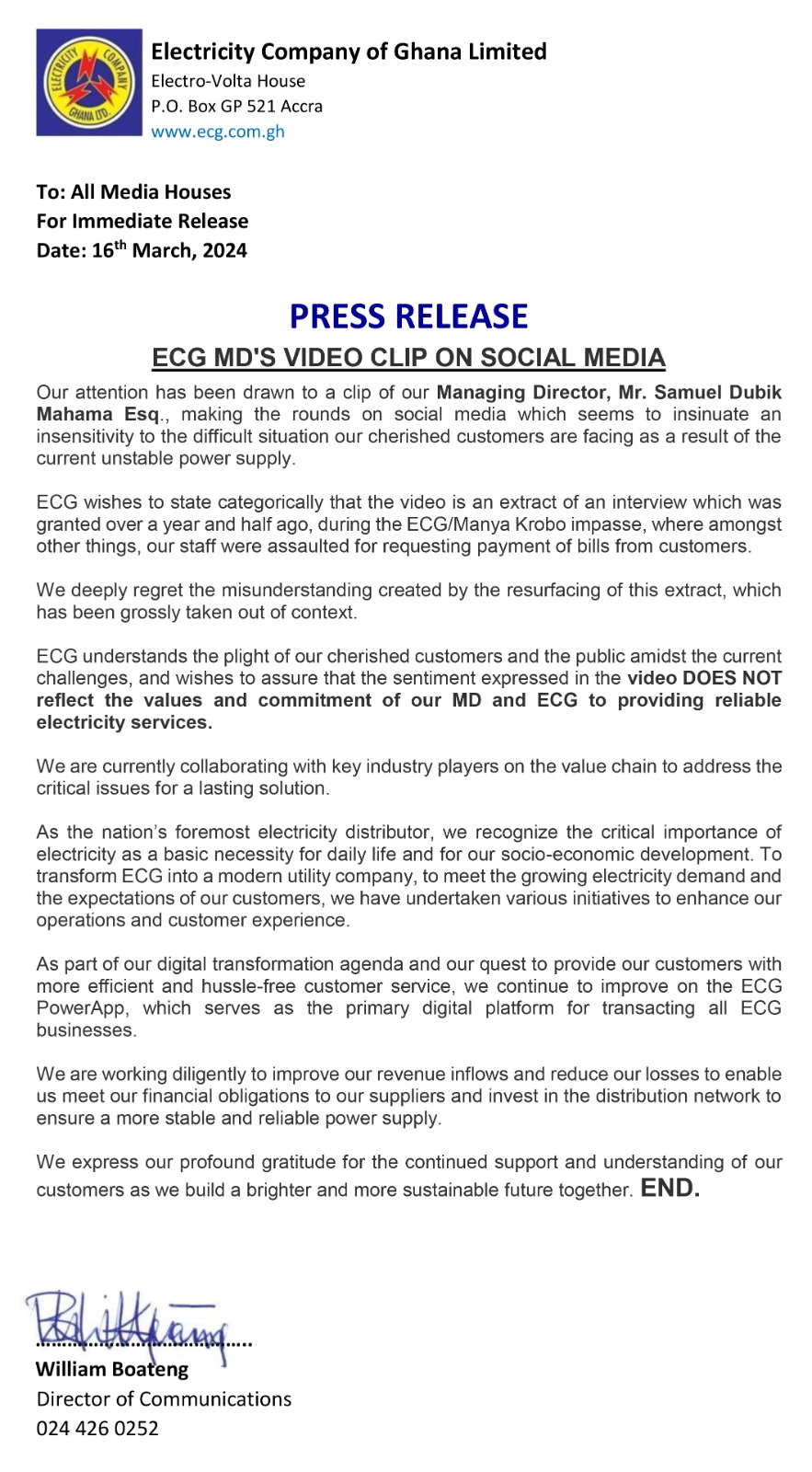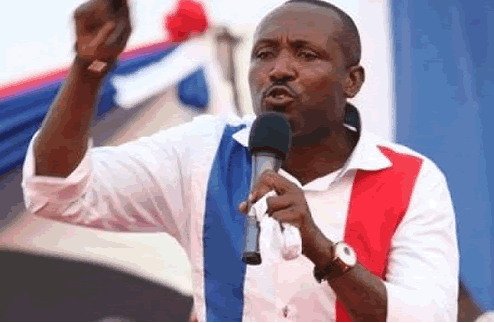
Energy analyst Dr Yusif Sulemana has described the decision by the Millennium Challenge Corporation (MCC) of the United States to withdraw the $190 million compact as “a double whammy”.
Speaking on TV3’s News Central on Friday with Keminni Amanor, the energy analyst noted that the move is due to lack of capital and inherent inefficiency in the electricity distribution value chain.
“We haven’t done the right thing and if you haven’t done the right thing and you expect something magical to happen, nothing will happen. I see that as a double whammy. This is a time that if you look at what is happening at the moment, is all because of what we couldn’t do in the distribution arm of it. First, we don’t have the capital that is is required and the inherent inefficiency in the system and that’s culminating in what we have today,” he explained.

Dr Yusif Sulemana noted that the involvement of the Independent Power Producers (IPPs) in the generation space despite the challenges, has brought some buoyancy into the energy sector.
In his view, efficient private sector participation in the distribution space will greatly enhance the sector and minimize the interference of political actors.
“When we have efficient private sector participation in energy sector, two things will happen: number one, they will inject the required capital that is needed to rejuvenate the system. To make the system resilient. Number two, private sector participation will minimize political interference in sector,” he explained.
For Dr. Sulemana, though Ghana needs private sector participation in the distribution arena of the electricity value chain. “The country needs a partner, it does not need a partner who will come in as a parasitic investor on the system,” he added.

He is of the view that the private sector should come in with a business-focus mind which will benefit both Ghana and the private sector.
“If you are coming into a partnership with empty hands that will not work and that actually culminated into PDS falling flat. Yes, we have lost a lot, am sure if we were to have had PDS deal going through, what we are having now we will not have it and even if we were to have it, it won’t be on the scale we are having now,’’ he opined.
What would $190m have done for ECG?
Dr. Sulemana believes the system in operation now should be invested in, to make it more buoyant.
He noted that a key contributory factor to the commercial losses Electricity Company of Ghana (ECG) is facing is lack of investment.

“This system needs to be invested in. If I look at the distribution arm, where we have the biggest issue is the metering system. That’s a huge sink, apart from the inefficiencies. The metering system that is contributing to the commercial loses is a huge financial sin.
What this money could have done will have been to help ECG to go this cashless method in a way they can invest into the metering system to get state of the art metres that cannot be tampered with, metres that can help full cost recovery. The money would have helped to invest into the infrastructure system,” he contended.
Meanwhile, the Executive Director of the African Centre for Energy Policy (ACEP), Ben Boakye, is blaming the loss of $190 million due to the PDS Scandal on political manipulations under the operations of the Millenium Development Authority (MiDA).
He posted on his X page that: “MiDA was a significant part of the problem; Ghana had to lose so much when it decided to subsume operational decisions under overt and covert political manipulation. $192m is the tip of the iceberg. The totality of our loss is what we see in the power sector today; a mess.”
In a related development, flagbearer of the National Democratic Congress (NDC), John Dramani Mahama has promised to “ensure a thorough investigation of the PDS [Power Distribution Services] scandal to hold those involved accountable.
In a Facebook post, John Dramani Mahama said the ‘corrupt, ‘yenkyendi’, and cronyistic governance practices’ spearheaded by President Akufo-Addo and Vice President Dr. Mahamudu Bawumia led to the loss of the $190m US Millennium compact.
Background
The PDS concession was a key component of the Millennium Challenge Compact II (MCC II), signed in 2014 between the Ghanaian government and the US’ Millennium Challenge Corporation.
In 2017, after re-negotiations with Millennium Challenge Corporation (MCC), the original arrangements to give 80 per cent of the assets of the Electricity Company of Ghana (ECG) to foreigners were changed to a 51 per cent ownership by Ghanaians and 49 per cent to foreigners.
This required the foreign bidders to find a local Ghanaian consortium to take up the 51 per cent of their shareholding to make their bid whole.
The concession agreement with Power Distribution Services (PDS), was suspended on July 30, 2019 by government due to what it called “fundamental and material breaches”.
The Electricity Company of Ghana (ECG) was then again given full control of power distribution.
By: Isaac Kwasi Amekor
The post PDS Scandal: Withdrawal of $190m MCC compact will worsen power supply situation – Energy Analyst first appeared on 3News.
Read Full Story










Facebook
Twitter
Pinterest
Instagram
Google+
YouTube
LinkedIn
RSS